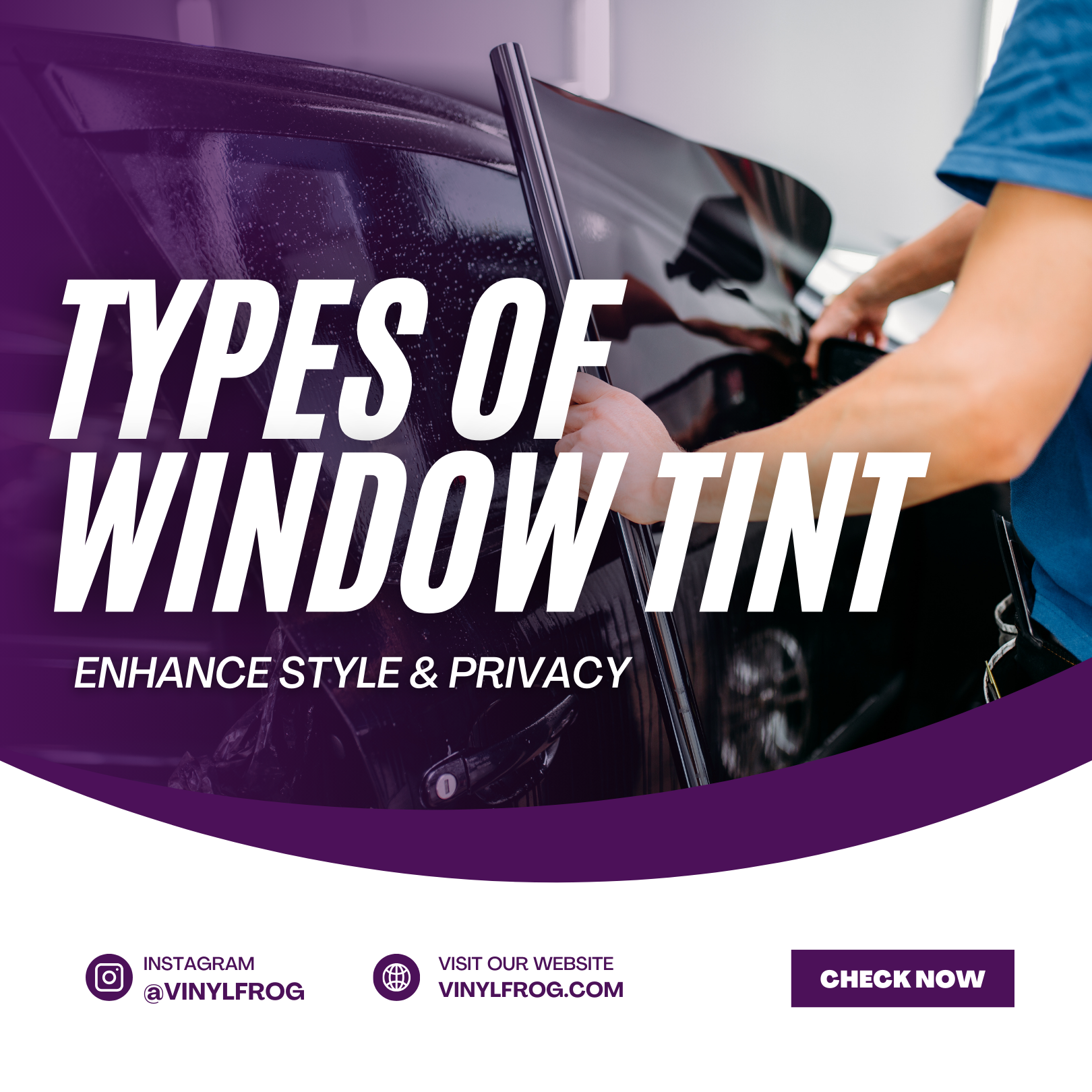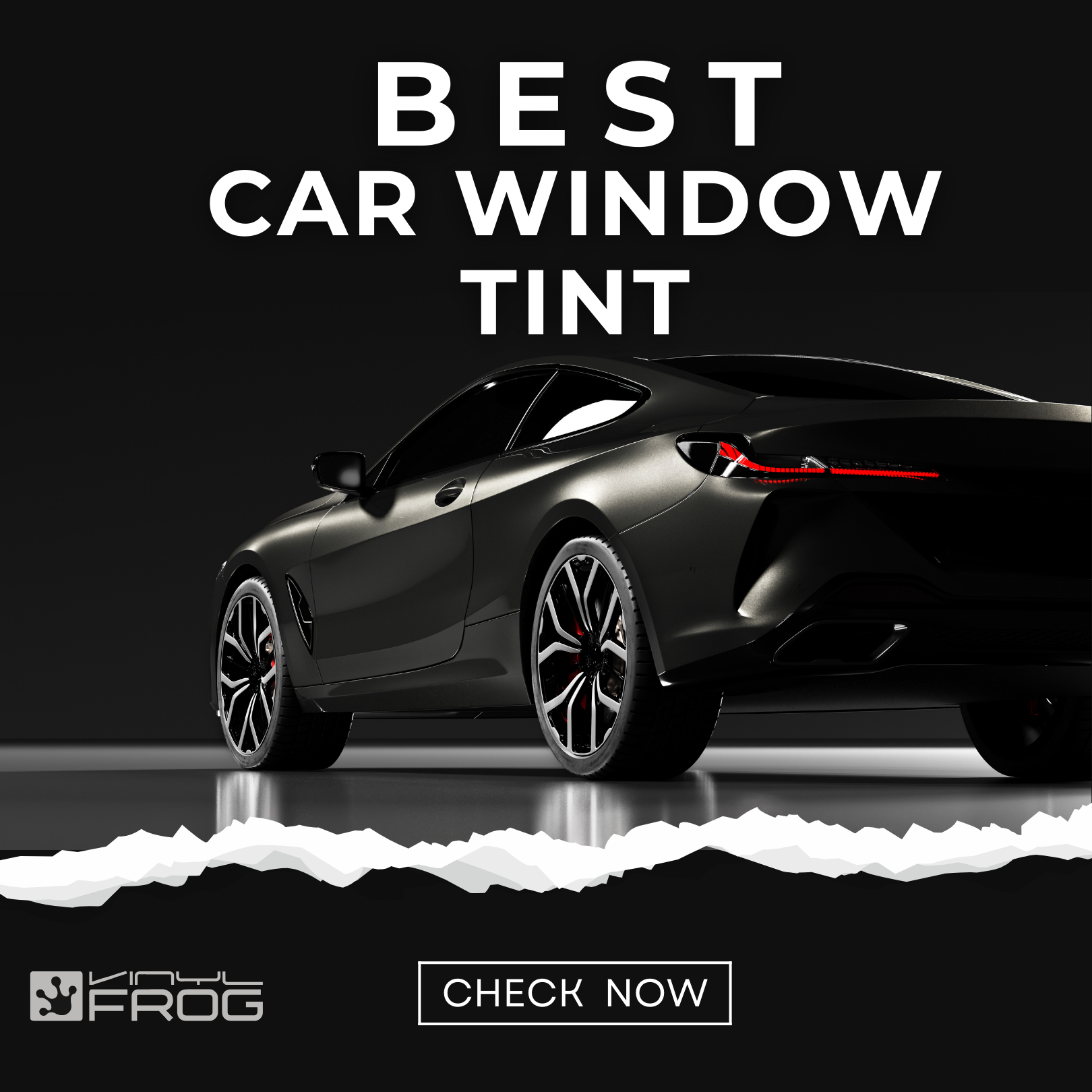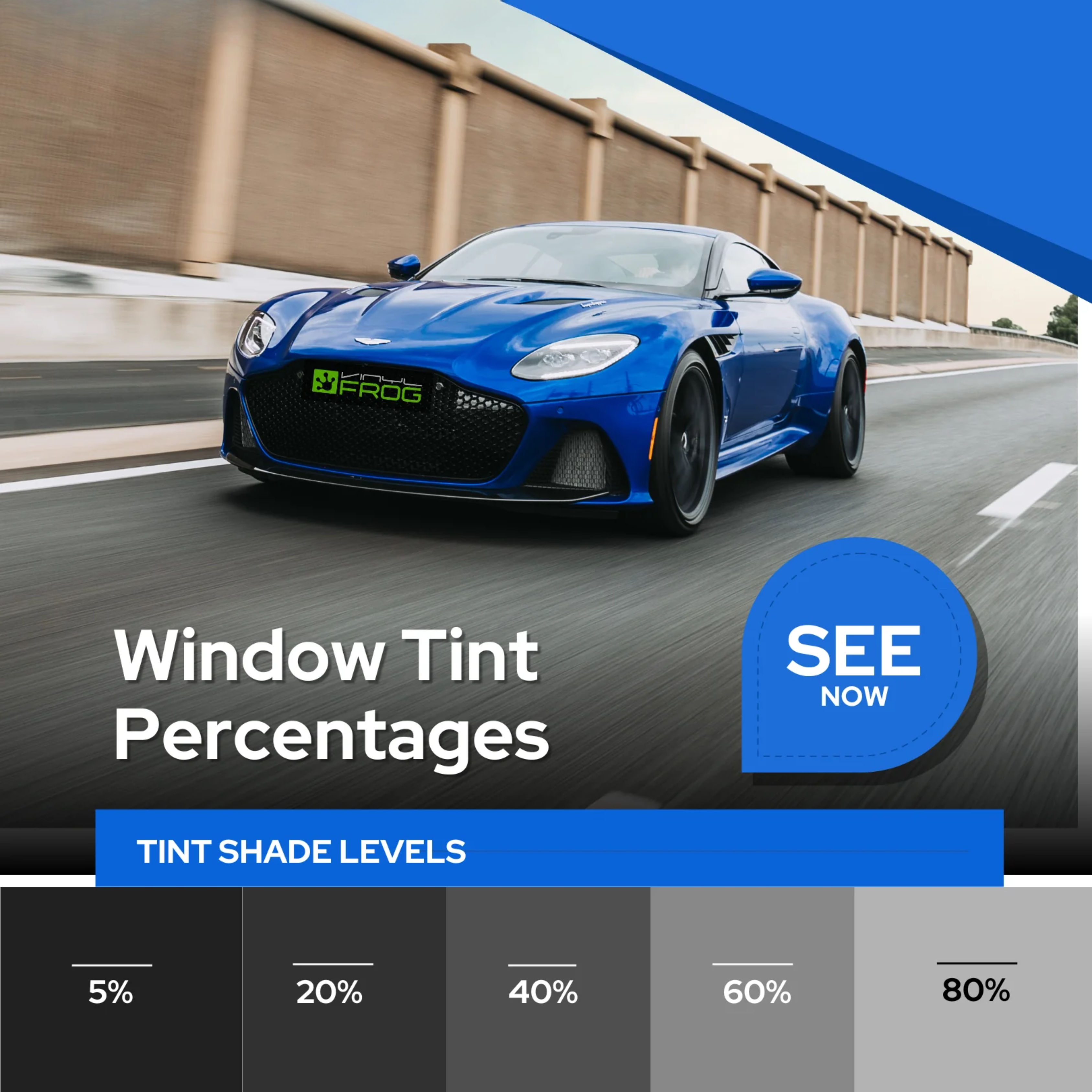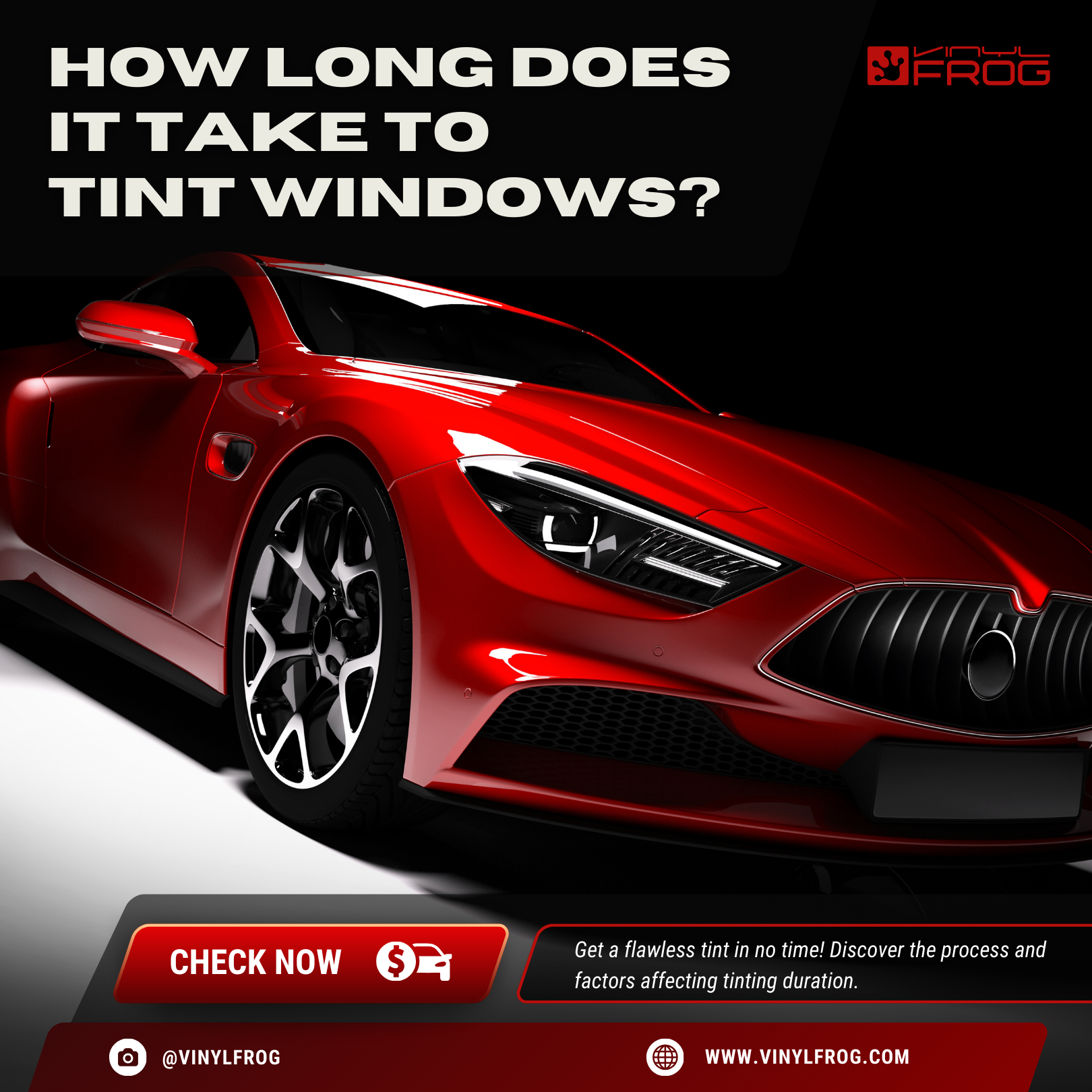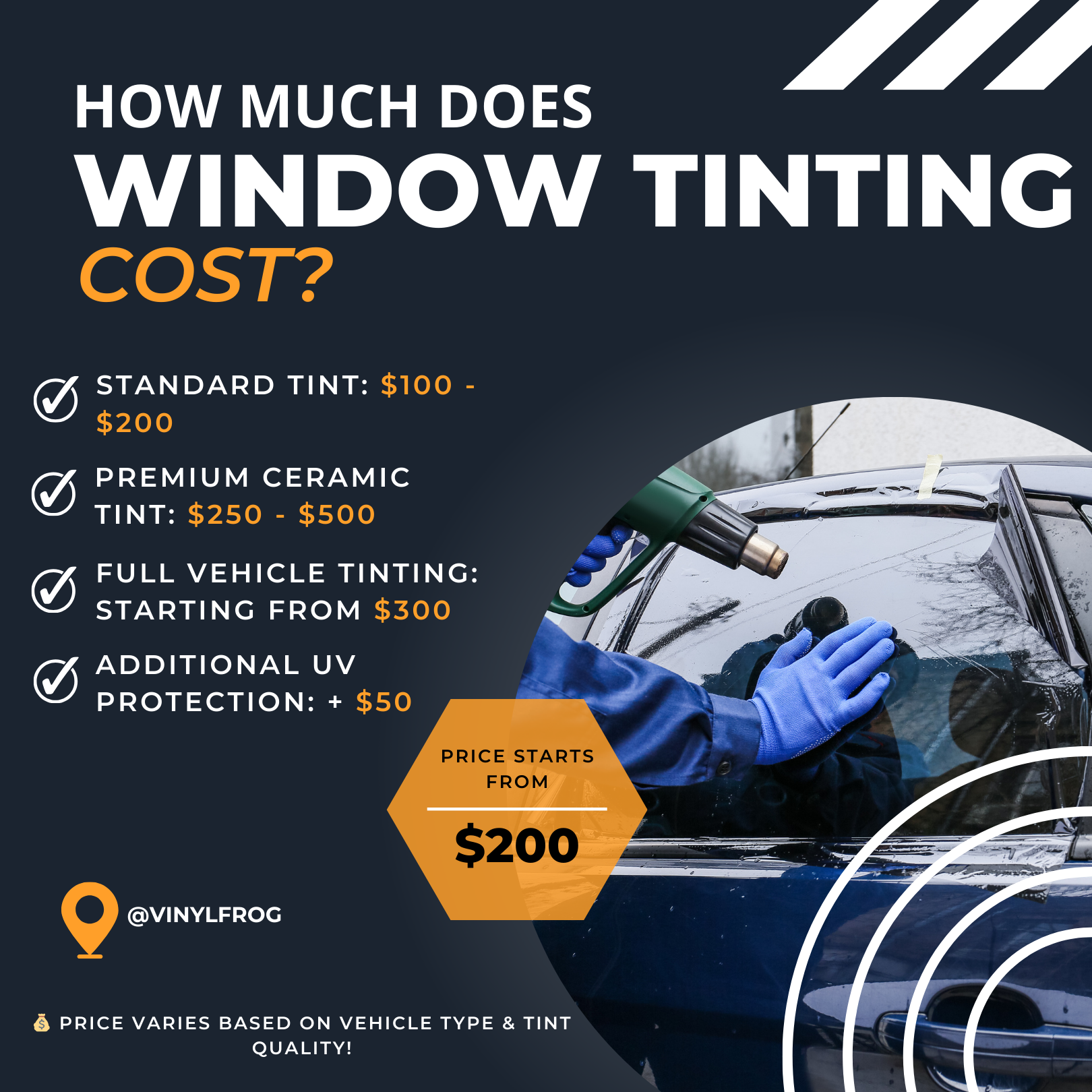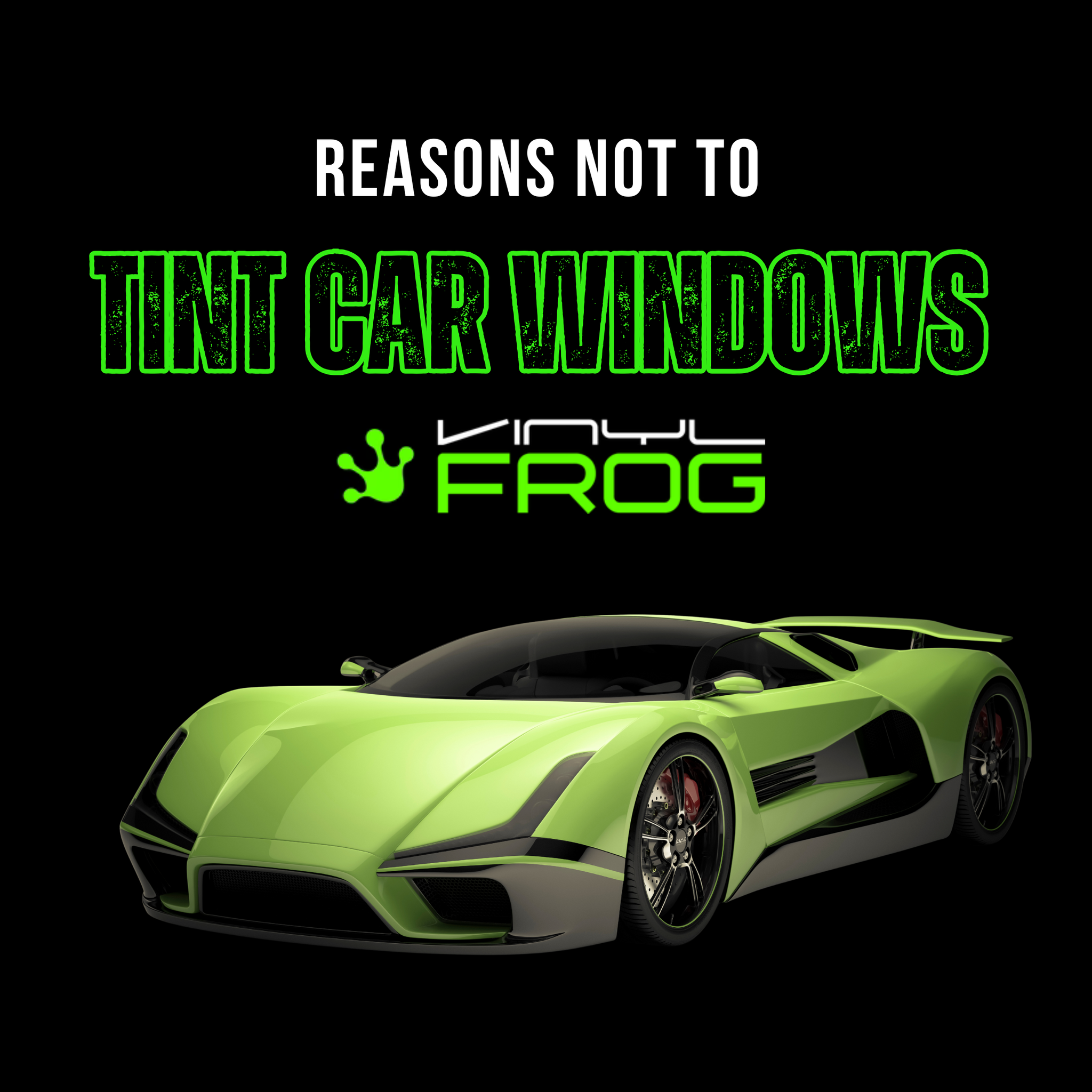Updated By Vinyl Frog On April 22, 2025
Carbon vs Ceramic Tint

Car window tints come in many types, and among them, Carbon and Ceramic tints are the most preferred and high-quality choices. It can be hard to pick one, so this guide explains the difference between Carbon and Ceramic tint. We’ll explore what each type is made from, how they’re not the same, and what they share, so you can decide which suits your car best.
The Difference In Window Tints
Tint films give your vehicle a sleek and stylish appearance. The darkened windows create a uniform and sophisticated look, enhancing the overall aesthetic appeal. But these are not only installed for improved appearance, they also protect against harmful UV rays and excessive heat. Some people also like to get their cars tinted to enhance privacy.
Window tints save your car’s interior cabin from getting dull and damaged. They prevent the upholstery from fading due to sunlight. They also keep the temperature of your car cooler in the scorching heat. There are different types of window tints available such as dyed, metallized, carbon and ceramic.
Dyed tints are more for the look than protection. These are not as durable as well and are the least expensive option. Metallized tints, on the other hand, are produced by applying a thin coat of reflective metal to the tint film. They are more expensive than dyed films and offer protection against UV rays as well but they interfere with radio signals, GPS and phone signals. Hence they are not much preferred.
The two best categories of window tints are carbon and ceramic. Let’s discuss the composition of these two.
What Is Carbon Tint?
Carbon tint films are a lot better option to choose from compared to metallic and dyed films. These do not have any dyes and are made with carbon nanoparticles embedded within the film. These particles are typically in the form of fine carbon black powder. They absorb and block solar heat and UV radiation. They do not fade with use over time and retain their dark black color.
Carbon tint film is typically composed of multiple layers, each serving a specific purpose. The exact composition, however, may vary among different manufacturers. The base layer is usually made of polyester that provides structural integrity to the film. A layer of adhesive is applied to one side of the polyester film.
There is a layer of carbon particles on the other side of the polyester and to protect this from scratches, dirt, and other damage, a top coating is applied. This coating is usually made of scratch-resistant materials, such as acrylic or other polymers, that help maintain the film's appearance and longevity.
What Is Ceramic Tint?
Ceramic tint is the premium product. It is highly regarded for its advanced performance and properties. The primary component of ceramic tint is ceramic nanoparticles. They are extremely small, often measuring in the range of 10 to 100 nanometers. These ceramic particles are embedded within the film and are responsible for its unique properties.

The ceramic tint comprises multiple layers whose specific composition can vary among manufacturers. It has the polyester base layer with adhesive on one side and the ceramic particles on the other with a top protective coating.
Carbon vs Ceramic Tint: A Detailed Comparison
Both the carbon and ceramic tints are quite popular and offer different features and benefits. Here's an in depth comparison between the two:
Heat Rejection
Carbon tint film offers a moderate level of heat rejection, say up to 40%. The carbon particles embedded within the film help to absorb heat to a certain extent, though performance depends on the film’s quality and darkness.
Ceramic tint is better in this area.
The ceramic nanoparticles embedded within the film contribute to its advanced performance in blocking solar heat. This helps to keep the interior of a vehicle cooler, even under intense sunlight or hot weather conditions.
Verdict: For superior heat control, Ceramic tint clearly wins.
Glare Reduction
Both tints help lessen glare from sunlight and headlights. Carbon tint darkens the windows to reduce glare, though it may make night driving a bit harder. Ceramic tint uses new technology to control glare and still gives clear visibility in all light conditions.
Verdict: Both work well, but the Ceramic tint is better.
Clarity And Visibility
Carbon tint has a dull finish that may lower visibility at night or with darker films. Ceramic tint, on the other hand, keeps everything clear and sharp in any light.
Verdict: Ceramic tint offers clearer and sharper visibility.
UV Protection
Carbon tint blocks a fair amount of harmful UV rays, depending on its quality. Ceramic tint, however, provides nearly complete UV protection, blocking up to 99% of UVA and UVB rays, which helps protect both your skin and your car’s interior.
Verdict: Ceramic tint gives the highest level of UV protection.
The Cost Factor
The price of window tints depends on different factors such as:
- The brand and quality of the film
- The darkness level or shade percentage
- The size and number of windows
- The type of vehicle (sedan, SUV, or van)
- The installation process and labor cost
- The city or tint shop you choose
Average Price Range:
- Carbon tint usually costs between $250 and $450.
- Ceramic tint typically ranges from $400 to over $800.
The price gap is mainly because ceramic tint uses advanced materials that offer better heat rejection, UV protection, and durability. It is a high-performance film designed to keep your car cooler and protect the interior from damage. For larger vehicles like SUVs or vans, the total cost can rise since more film and labor are required.
Verdict: Ceramic tints are more expensive than carbon tints, but they provide long-term benefits in comfort, protection, and overall value.
| Carbon Tint | Ceramic Tint |
|---|---|
| Good level of heat rejection. | Exceptional heat rejection. |
| Darkening effect helps to reduce glare. Might affect visibility. | Higher clarity allows for better visibility while still providing excellent glare reduction. |
| Dark, matte appearance. | Superior clarity. Neutral and natural appearance. |
| Blocks a portion of the ultraviolet radiation from the sun. | Provides the best UV protection, blocking a high percentage of UVA and UVB rays |
| More expensive than dyed or metalized tints. | The most expensive tint on the market. |
Similarities Between the Carbon and Ceramic Tint
- Both the tints do not interfere with radio, cellular and GPS signals.
- Depending on the VLT percentage, they do not compromise the privacy and safety of their users.
- They are scratch resistant.
- They are non-reflective.
- They resist color fading or discoloration over time.
Should You Buy Carbon Or Ceramic Tint?
The decision to buy carbon or ceramic tint comes down to the cost factor. Both tints provide protection against UV rays, excessive heat, and glare, but there is no denying the fact that comparatively, ceramic tint does the job extremely better.
These tint films have certain similarities as well, like they both are durable and long lasting; their color does not fade; they do not interfere with GPS or cellular signals and they are both non-reflective. They both have a sleek and modern aesthetic as well. The difference comes where advantages are concerned with ceramic tint being the best of all.
Ultimately, the choice between carbon tint and ceramic tint depends on individual preferences, budget, and specific requirements. If heat rejection and UV protection are top priorities, and budget allows, ceramic tint is the perfect option to invest in. However, if you don’t want to spend much, carbon tint can still provide decent performance and privacy benefits at a more affordable price point.
Frequently Asked Questions
Carbon vs Ceramic: Final Words
The choice between carbon or ceramic tint ultimately comes down to how much you are willing to spend. People often choose carbon over ceramic tint if on a budget. It provides the benefits of window tinting though not at the highest level.
If you can spend more and want supreme heat rejection, UV protection, and glare reduction with maximum privacy and security, ceramic tint is the one for you.









